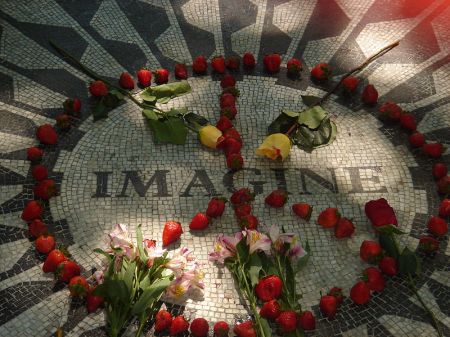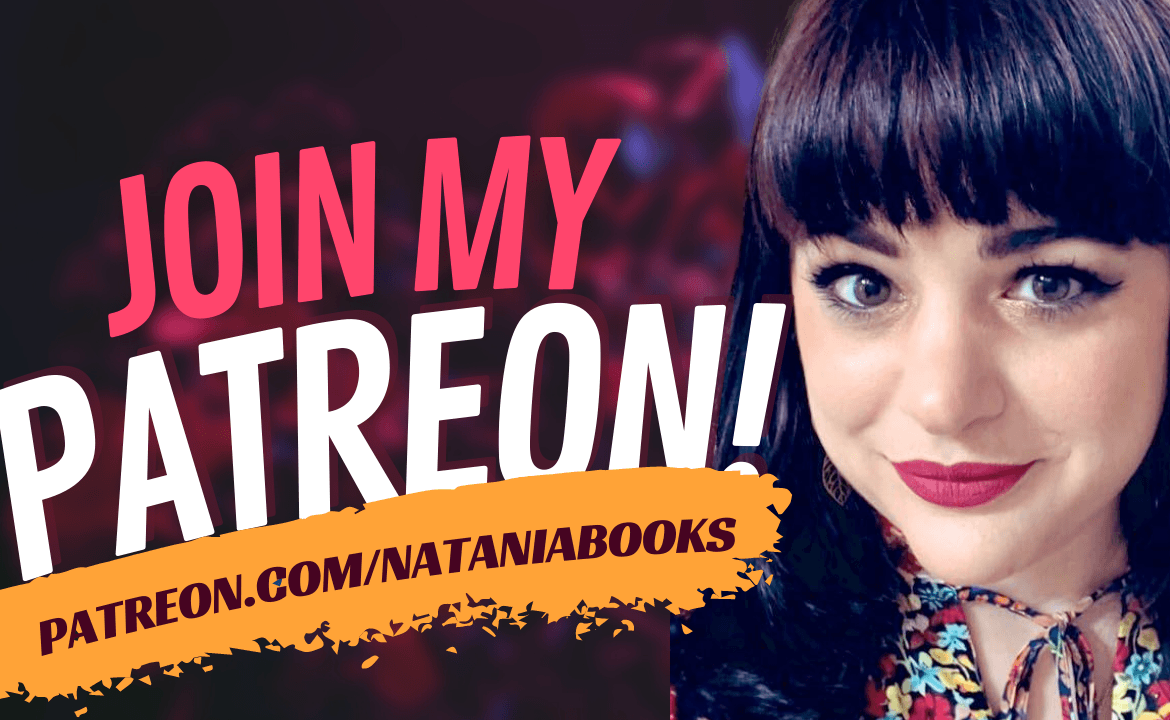Yesterday was the anniversary of John Lennon’s death. 32 years have passed since that fateful walk, when the world was forever robbed of a mad, genius, restless, beautiful soul. I don’t remember that day: I was in utero.
I won’t proclaim that John was a flawless visionary, because he wasn’t a perfect man. He made some staggeringly bad choices in his life, he struggled with horrible addictions, and I do believe he walked that fragile line between madness and visionary for most of his life. His youth was marred by loss and pain, but he quickly turned that around to something amazing. I think because the Beatles are so steeped in modern myth sometimes it’s hard to step back and realize just how special they were. When Lennon met McCartney, it really was a magic moment, but it was also the meeting of two young men who’d had their hearts broken early on and found, together, that they could make music like no one else on the planet.
I’ve always had an easier time with McCartney. His music, his life, it’s simpler to understand on a variety of levels. He’s always been my favorite Beatle, and while I do think the world’s most perfect song is possibly the Harrison number “Something” I think, over all, McCartney was the stronger of the songwriters. As most Beatles fans know, the Lennon/McCartney moniker was more of a catchall as the band went through the years. And by ’65, you can already hear where they’re diverging. Sure, there’s famous collaborations (the echoes in “It’s Getting Better” were from John, for instance, and the middle eight in “A Day in the Life” is all McCartney) but their work goes in very different directions once they break out of the that early pop phase.
When it comes to “getting” Lennon, I always come closest during the ’65-’66 years. It’s my favorite period for the Beatles music, anyway (not that I don’t like what came after, but these are always my go to albums) but I think in part that’s because Lennon’s also at his strongest. He’s not yet met Yoko. He’s not yet divorced from Cynthia (although their relationship is anything but peaceful). His songwriting has that tinge of strangeness to it, but hasn’t yet gone down the route of hard-drug influence or Yoko influence. You can still hear how rooted he is to the influences of his youth, from a musical standpoint, and yet he’s breaking free as a lyricist of his own right. Maybe it’s the LSD that came in ’66 that changed him completely, I don’t know. What came later was beautiful, but it was never as fragile or innocent. The difference between Rubber Soul and Revolver are pretty staggering, especially with Lennon’s contributions, yet they both hold that last bastion of youth and wonder that I think, for the most part, are lost later on.
Take “It’s Only Love” for instance, a song which Lennon stated he hated because the lyrics, in his mind, weren’t very good. It’s from the album Help! (which, as John had said, was a literal cry for help). Sure, the lyrics aren’t exactly Grammy material (quoth McCartney: “Sometimes we didn’t fight it if the lyric came out rather bland on some of those filler songs like ‘It’s Only Love’. If a lyric was really bad we’d edit it, but we weren’t that fussy about it, because it’s only a rock ‘n’ roll song. I mean, this is not literature.”), but there’s a sense of brokenness and helplessness that, combined with the pining melody, always gets me.
It’s only love and that is all
Why should I feel the way I do?
It’s only love, and that is all
But it’s so hard loving you
Yes it’s so hard loving you, loving you
No, not literature. Not in any sense of the word. He’s just describing that alienating, suffering feeling he gets from being in love and not being able to do a thing about it. Petrarch was on to that ages ago. But John had a way with progressions, taking something relatively simple and twisting it just so with an unexpected resolve or a minor chord or a melody that flips at the last second. In “It’s Only Love” it’s the second time he sings the title words in the chorus–going from the B flat to the G7 rather than to the Am–that take a potentially weak song and make it something more. Give me chills, every time. Melancholy, longing, frustration… it’s all there, in the melody straining against the chords. And it’s brilliant.
And with Rubber Soul he comes to the forefront of the entire song list with “In My Life” which, I don’t need to tell you, has become one of the most often sung graduation/wedding/mar mitzvah tunes on rotation. But that doesn’t take away from the sheer genius of it. Unlike “It’s Only Love” John packs a double punch with lyrics both haunting and heartbreaking, and the music to back it up. (Of course, like much, there’s some dispute: John claims that McCartney only worked on the harmonies and middle eight, while McCartney claims to have written all the music and not the lyrics–personally, I think John’s recollection is likely right. The progressions are a little too off to be just McCartney.) Dealing with the passing of childhood and innocence, it may be the very song that musically marks the moment of John’s transition from the young man crying “Help!” to the one steeped in mysticism and drug addiction.
I can’t overstate the Beatles’ influence in my writing and in my life. It’s quite possible I’d be an entirely different person if not for their music. And the ’65-’66 years got me through (literally) a really difficult high school experience. I couldn’t have cared less about grunge when I had the Beatles. And John’s struggles, especially the ones he wrote in music, spoke to me more during that time than any of the rest of the catalog. Which isn’t to say that “Happy Xmas (War is Over)” doesn’t make me burst into tears every time I try to sing it, but still. John was a man of many faces, many lives, even though he lived such a very short time. The older I get the more of an appreciation I have for him and for his accomplishments, but the more I see him as a man tortured by the complications brought on by our very existence. What would he have done if he’d have lived longer, finally having conquered most of his demons? We’ll never know, I’m afraid. But that he’s inspired thousands upon thousand of musicians and given life to two words (Imagine, and Peace) I think would make him, at last, content.











The Beatles were (and are) such an influence on my life that I’d take over your blog if I commented here in a ramble. Maybe I’ll email, although I think you already know quite a bit about my experience. John Lennon was my age when he was killed, and I’ve been thinking about him a lot this year.
I know the feeling. I only grazed the very surface. But these two songs have been on my mind lately, so I thought I’d do a little rambling on the subject. 🙂
The Beatles got me through high school in the late ’70s, and Lennon was my favorite. I was a first-year in college when he was killed, and it was pretty traumatic for me at the time. It felt like a member of my own family had died. And yeah, I could go one, too. Thanks for a lovely remembrance.